Companies lobby EU for 30% emissions reduction
72 top European companies have signed up to a Joint Declaration calling on the EU to adopt a 30% emissions reduction target by 2020.
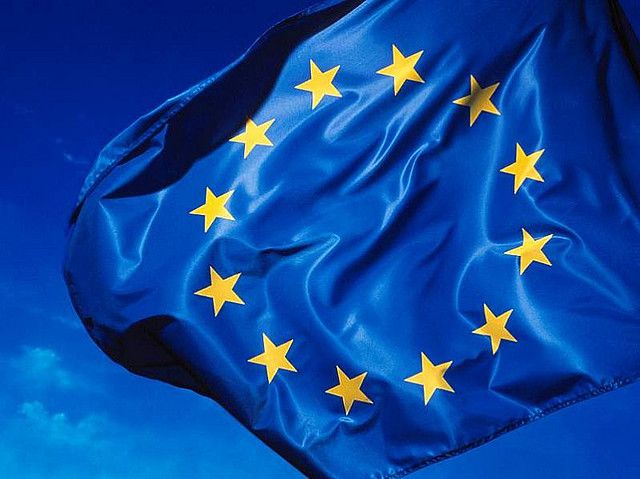
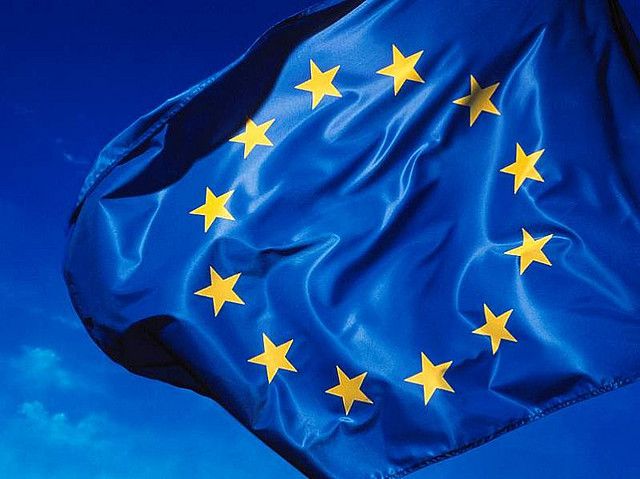
72 top European companies have signed up to a Joint Declaration calling on the European Union to adopt a 30 per cent emissions reduction target by 2020 below 1990 levels, to preserve the European Union’s competitiveness, and build a low-carbon economy.
Together, the signatories of the call account for more than 3.8 million employees, with an annual turnover of more than €1 trillion a sum, superior to the combined GDPs of Poland, Sweden and Austria.
These market leaders represent a variety of companies, each facing different challenges in addressing climate change and international competition. They are proving their economic insight by committing to being a constructive part of the solution to climate change, and agreeing that the many benefits of a swift transition to the low carbon economy outweigh the costs of emissions reductions.
Companies supporting the call include: Acciona, Adolfo Dominguez, Allianz, Alpro, Arjowiggins graphic, Arkadin, ASDA, Atkins, Aviva, Aviva Investors, Barilla, Better Place, BNP Paribas, Boralex, BSH Bosch Siemens Hausgeraete, British Telecom, BSkyB, Capgemini, Carrefour, Centrica, Climate Change Capital, The Coca-Cola Company, Coca-Cola Enterprises, Coca-Cola Hellenic, Crédit Agricole, Danfoss, Danone, DHV Group, DONG Energy, Electrolux, Elopak, Eneco, Eurostar, F&C Asset Management, Ferrero, First Solar, Google, H&M, If P&C Insurance Company Ltd, IKEA, InterfaceFLOR, John Lewis Partnership, Johnson Controls Inc, Kingfisher, Lafuma, Mango, Marks and Spencer, National Grid, Nestlé, Nike, Nokia Siemens Networks, Novo Nordisk, Philips, PUMA, Rockwool, RSA, Scottish and Southern Energy, SKAI Group of Companies, Sony Europe, Standard Life, Sveaskog, Swiss Re, Thames Water, The Co-operative Group, Tryg, Unicredit, Unilever, United Biscuits, Velux, Vestas, Vodafone and WSP Group.
Since it’s first presentation in October 2010, the joint business declaration led by The Climate Group, The Cambridge Programme for Sustainability Leadership, and WWF Climate Savers Programme has more than doubled its supporters. It will be widely distributed to the European Commission, Council, Parliament and Presidency ahead of the EU Environment Council on 21 June and the European Parliament’s vote on moving beyond 20 per cent on 23 June.
Signatories are asking for a European policy framework that will spur innovation and investment such as renewable and efficient energies to ensure European energy security. Imports of oil and gas could be reduced by €45.5 billion in 2020, and energy efficiency and renewable energy sources could decrease the economy’s import dependency and vulnerability to fossil fuel prices even further – the reduction in the oil and gas import bill could amount to €600 billion or more per annum by 2050.
Funding such investment could come from the instruments that are driven by Europe’s climate targets, like auctioning revenues from the European Union Emission Trading Scheme; it is estimated that stronger clean energy policies could help increase the EU’s cumulative investments by 20 per cent between 2010 and 2020.
The 72 signatories have also understood that an increased climate ambition will contribute to the creation of new direct and indirect jobs. Overall, a stronger policy framework could result in a net increase of 6 million European jobs by 2020 .
Luc Bas, Director European Programs, The Climate Group, says: "Signatories to the declaration are part of a growing business community convinced that a 30per cent target can lead to the market transformation needed to ensure Europe's position as a global leader in a low carbon future. Now, more than ever, businesses realize that a clean industrial revolution is the only way forward for sustainable growth and job creation in Europe and the world".
The companies are being joined by a growing number of states and regions, which are also speaking out for a 30 per cent EU reduction goal. An EU regional governments' call for a 30 per cent GHG emissions reduction is being coordinated by The Climate Group’s States and Regions Alliance and currently supported by Baden-Württemberg, Bavaria, Brittany, Catalonia, Cornwall, Île-de-France, Rhone-Alpes, Scotland, Upper Austria and Wales. It will likewise be communicated to European decision-makers, highlighting the potential of energy savings, renewable energy and other environmentally sound technologies for regional economic development and job creation.
A selection of corporate leaders have voiced their support (for a full list, see press release). Dr. Kurt-Ludwig Gutberlet, CEO, BSH Bosch und Siemens Hausgeraete, says: “Climate change, energy efficiency and resource conservation seem likely to top the agenda for the foreseeable future. We can make a valuable contribution to protecting our climate and our resources with our innovative super-efficient home appliances.”
Anders Eldrup, CEO, DONG Energy says: "Renewable energy at competitive prices is a prerequisite for a clean and reliable European energy supply. But the current framework does not properly incentivize renewable energy. While the energy sector strives to drive down the cost of renewable energy production through R&D, and while fossil fuel prices increase, we still need for European regulators and policy makers to ensure that the price of CO2 is properly reflected in the market. This calls for a move to 30 per cent emissions reduction by 2020".
Garrett A.G. Forde, CEO, Philips Lighting said: "Now is not the time for the EU to step on the brakes and give up its leadership position. Instead the EU should speed up the transition to a low carbon society, as we firmly believe there is a wide range of benefits for consumers, the environment and the economy. At Philips we have set the ambitious target to improve the energy efficiency of our entire portfolio by 50 per cent by 2015. We believe we can set even more ambitious targets for beyond 2015 if the EU provides a clear, ambitious and long term commitment towards a low carbon economy."
Ian Marchant, CEO, SSE, says: ‘SSE supports the call for a more ambitious EU target, as we believe that the benefits of early action far outweigh the costs of inertia or delayed action. Furthermore, it would support the ambition of the electricity industry to be fully decarbonised by 2050.’
Mikael Ohlsson, CEO, IKEA Group says: "At IKEA we are committed to a long term strategy where all IKEA Group stores and buildings will be supplied with 100 per cent renewable energy and we will improve our overall energy efficiency by 25 per cent compared with 2005. We drive renewable energy and energy efficiency in all aspects of our business and see opportunities together with our customers to be more energy efficient in every home. Clear and strong EU policies and goals are necessary to enable clean evolution and innovation together with businesses and citizens. The EU needs to play a leading role in tomorrows society."
Hannah Jones, VP Sustainable Business and Innovation, Nike says: “Nike believes that progressive EU Climate Strategy will help forge the pathway to environmental progress, economic growth and will provide a healthy stimulus for innovation. We would like to see the EU being ambitious in its climate strategy because business needs certainty and a level playing field to help spur green jobs and unlock innovation essential to creating technology and infrastructure solutions for a sustainable future.”
Agostino Renna, VP & GM, South & Central Europe, Energy Solutions, Johnson Controls Inc. says: "There has never been a more compelling event than the phenomenon of climate change. With its formidable challenges will come unprecedented opportunities to drive innovation and economic growth in Europe. The time for action is now. Amplified, focused, ambitious and assertive policy and legislation aimed at stimulating demand for energy efficiency and low carbon technologies (especially in the buildings sector) in Europe, will bring clarity and certainty around the future of the new environmental economy and unlock investment and broad-based solutions of this truly global problem."
Image: Alexa[dot]kirk | Flickr

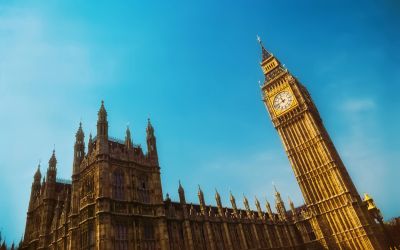


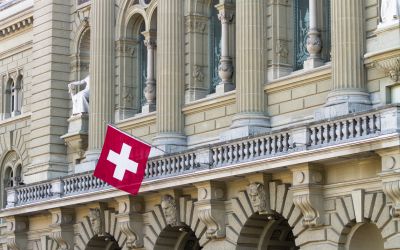
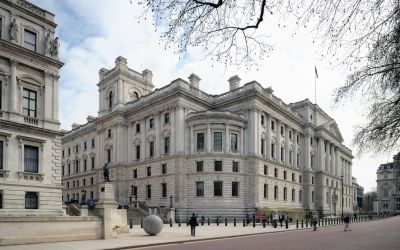
_400_250_80_s_c1.jpg)